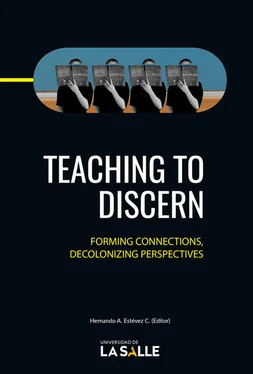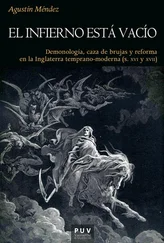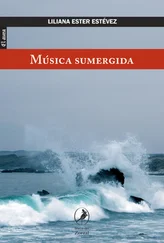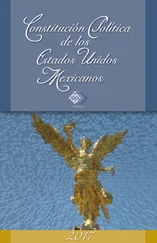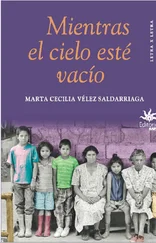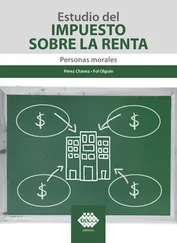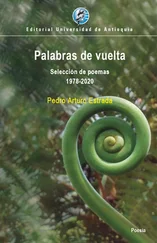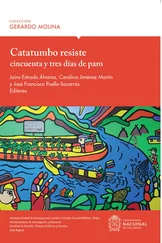On the other hand, we are positive that contact with small colleges or universities around the world is sometimes more fruitful than expecting exchanges with the large ones, as the former are more flexible and eager for that international contact. The size of the institution does not matter; what matters is the convergence to tackle social problems.
Those contacts do not necessarily end in local faculty members or students visiting a foreign institution; there are many models of effective programs that can be created locally, regionally, or nationally that simulate an international immersion experience and enable students to develop intercultural/international competencies without great investment.
It is possible to create programs “at home,” and they can have significant impacts in changing the students’ and faculty’s perspectives and enable them to develop competencies, such as intercultural communication, acquiring knowledge of different cultures and of different ways of dealing with societal problems. In our case, and as this anthology shows, the Summer Academy at Universidad de la Salle is a good example of a very successful way to bring the world to the institution.
Finally, reflections on world sustainability and development cannot be limited to the classrooms. Students need to implement what they have learnt and to experience the specific needs of the outer world, creating solutions to societal constraints. The internationalization activities give them the theoretical background for doing that; the institutional philosophy of service and research for social change pushes them to apply that knowledge.
References
Izecson de Carvalho, A., Looi, Y., Saad, F., & Sinatra, J. (2013). Education in Colombia: Is there a role for the private sector? Retrieved from http://knowledge.wharton.upenn.edu/article/education-in-colombia-is-there-a-role-for-the-private-sector/
UNESCO. (1996). Our creative diversity, report of the world. Commission on Culture and Development. Retrieved from https://unesdoc.unesco.org/ark:/48223/pf0000105586.
UNESCO. (2009). Higher education, research and innovation: Changing dynamics. International Centre for Higher Education Research. Retrieved from https://unesdoc.unesco.org/ark:/48223/pf0000183071.
02
Education, Pedagogy and the Content of Education
Hernando A. Estévez
Education and pedagogy have different spheres of action within the educational system. Education is a practice, a social activity and an action, while pedagogy is the pondering and reflection about educational theories. However, they possess the common goal of guiding individuals’ activities and behavior in any given society. This distinction is measured by the realm of their concern and their function in society: While pedagogy is concerned with the precepts and principles behind an educational theory, education’s main interest lies within the process involved in the practice of imparting knowledge.
In addition, pedagogy and education share a common political goal. Behind every given educational theory and pedagogical reflection is a political ideology. Every educational theory and pedagogical practice contains a political ideology. Every educational theory deploys in its practice a set of social principles and political rules conducive to perpetuating a given social and political structure, or, in the best case, it promotes a critique of the social order ruling society and its citizens. A pedagogical reflection in this sense aids the understanding of the social and political aspects of an educational theory by providing a rubric by which educational theories can be evaluated and understood. Most discourses on education have the structure of any given theoretical practice since they guarantee a desirable educational objective, presupposing an understanding of those who are going to be educated and demand specific procedures to reach and realize its objectives. Intrinsic to education’s role in society rests the need for a pedagogical practice consistent with the principles and the rules governing society in order to reaffirm the social structure and reflecting the principles governing the relations between citizens. If Plato is correct in The Sophist (1892) when affirming that education’s role in society is to release individuals from the affliction created by an excess of accepting opinions and the lack of truth and knowledge, then education must always be a catalyst towards some form of political change and pedagogy should be a reflection about its practice and principles.
When I was first invited by the Office of International Affairs at Universidad de La Salle in Bogotá to be part of the Summer Academy Program during the summer of 2016, I was also informed that one of the general aims of the program was to bring the world to the students of the university. Besides other general considerations, the program finds its uniqueness on the premise that the study abroad experience can be brought to the students of the university through a series of pedagogies, methodologies, academic contents and life experience from different professors from a variety of cultures; that is, the study abroad program at Universidad de La Salle invites researchers from different countries to discuss interdisciplinary topics, current trends on contemporary themes in order to provide a greater understanding of the global context to the students of the university. The rationale behind such an approach to studying abroad programs derives from the economic challenges that most of the students at Universidad de La Salle face while recognizing the current need for an education that must engage students in global issues and global concerns. As a whole, the program is designed to prepare students to interact globally and to get a significant glimpse of the world through interaction with various disciplines, languages, and peoples.
As a philosophy professor at Universidad de La Salle, the invitation to be part of such a unique program was exciting and challenging; my academic and personal experience with study abroad programs rests on the traditional programs organized by universities in the United States that primarily provide students with the personal experience of adapting to different cultural values, being immersed in a language, acquiring coping skills and tools for internationalization while developing opportunities for personal growth. Prior to working at Universidad de La Salle in Bogotá, I had the opportunity to be the co-director and faculty member of a study abroad program in the Caribbean for students from John Jay College (CUNY). This study abroad program was primarily designed for undergraduate students interested in the humanities, and all course contents were developed in topics that provided students with an understanding of the reality in which they were being immersed while they focused on issues of justice and social change as part of the university’s overall academic research interest.
Both programs shared the common interest of providing students and faculty with an opportunity to enhance their understanding of the world in an academic setting that celebrates cultural diversity while enriching the vibrancy of academic themes, topics and issues. Besides the commonalities and distinctions of the programs, that is, the difference between “bringing the world to the university” versus “taking students to the world,” and the common goal of aiming at gaining a greater perspective on the world. In this scenario, I argue that, regardless of the aim and the academic content of the program, study abroad programs need to provide a level of awareness to both students and teachers of the power and privilege endemic to travelling abroad. Although I do not intend to reduce the experience of study abroad programs to a simple relationship of power and privilege, I do believe that the content of the classes, the pedagogy used in each class as well as the function of education during the study abroad will greatly benefit from such awareness.
Читать дальше
